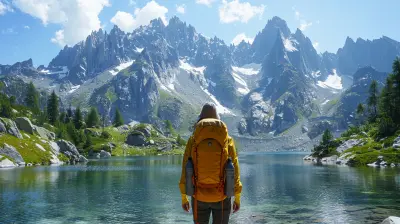Renting a Car in the Snow: What You Need to Know
17 October 2025
Winter travel can be magical—snow-covered landscapes, cozy lodges, and festive vibes. But driving in snowy conditions? That’s a different story. If you're planning to rent a car in the snow, there are a few things you must know to stay safe and avoid unnecessary headaches.
From picking the right vehicle to handling icy roads, this guide will cover everything you need to make your winter road trip smooth and stress-free. 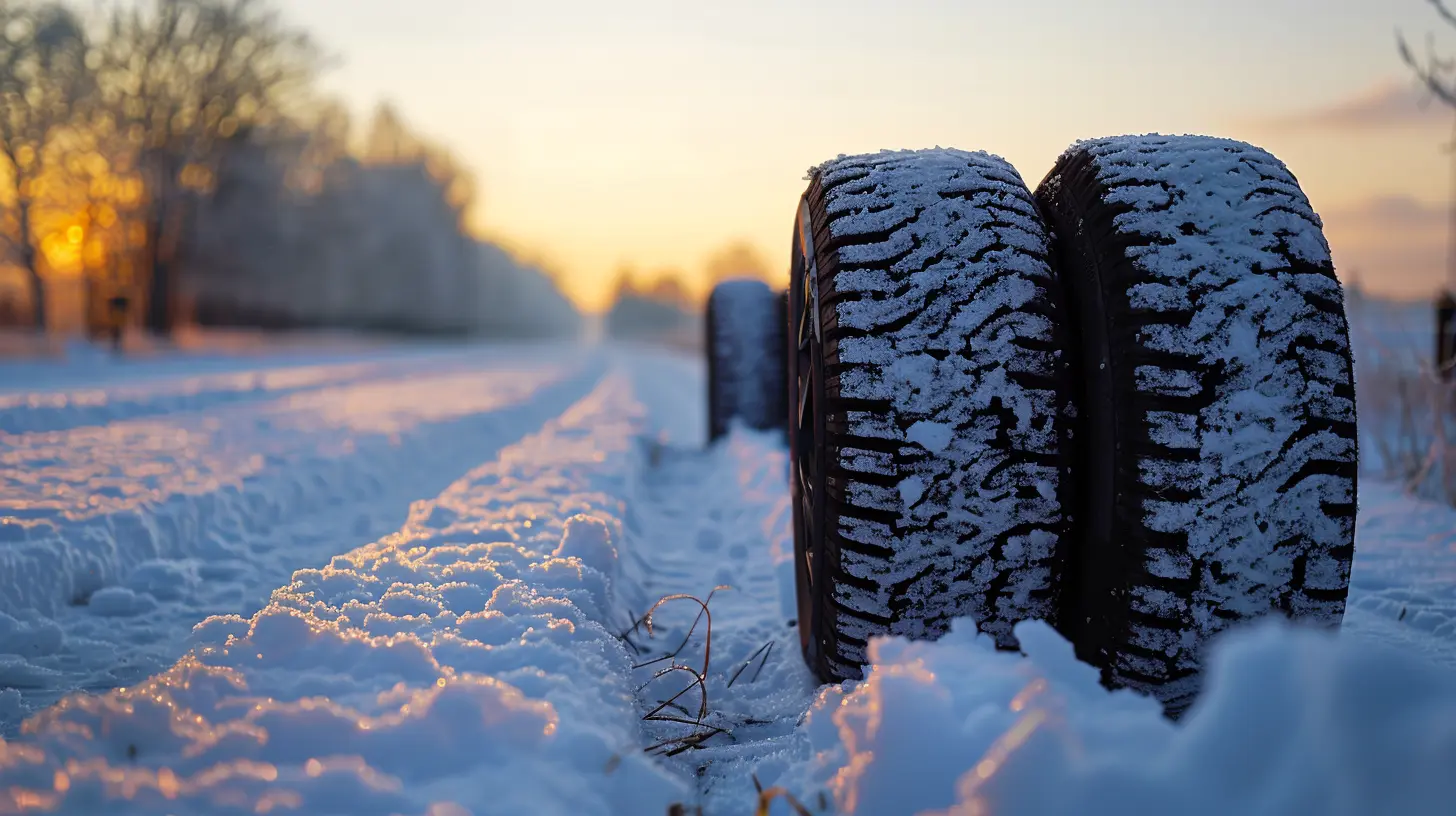
1. Choose the Right Car for Snowy Conditions
Not all cars are built for winter driving. If you're renting a car in snowy weather, choose wisely to prevent getting stuck (literally!).Best Types of Cars for Snow
- SUVs and Crossovers – These are your best bet. With higher clearance and all-wheel drive (AWD) or four-wheel drive (4WD), they handle snowy and icy roads much better than sedans.- AWD or 4WD Vehicles – These provide extra grip on slippery surfaces. While AWD is good for light snow, 4WD is better for deep snow and rugged terrain.
- Cars with Winter Tires – Even with AWD, tires make or break your traction. Always ask if your rental comes with winter tires (aka snow tires).
What to Avoid
- Small compact cars with front-wheel drive (FWD) – They might be fuel-efficient, but they struggle in deep snow.- Rear-wheel drive (RWD) vehicles – Sports cars and luxury sedans with RWD are a nightmare on icy roads. They slide way too easily.
> Pro Tip: Always check the rental company’s policies on winter tires and AWD options before booking. Some companies charge extra for these features, but they’re worth it. 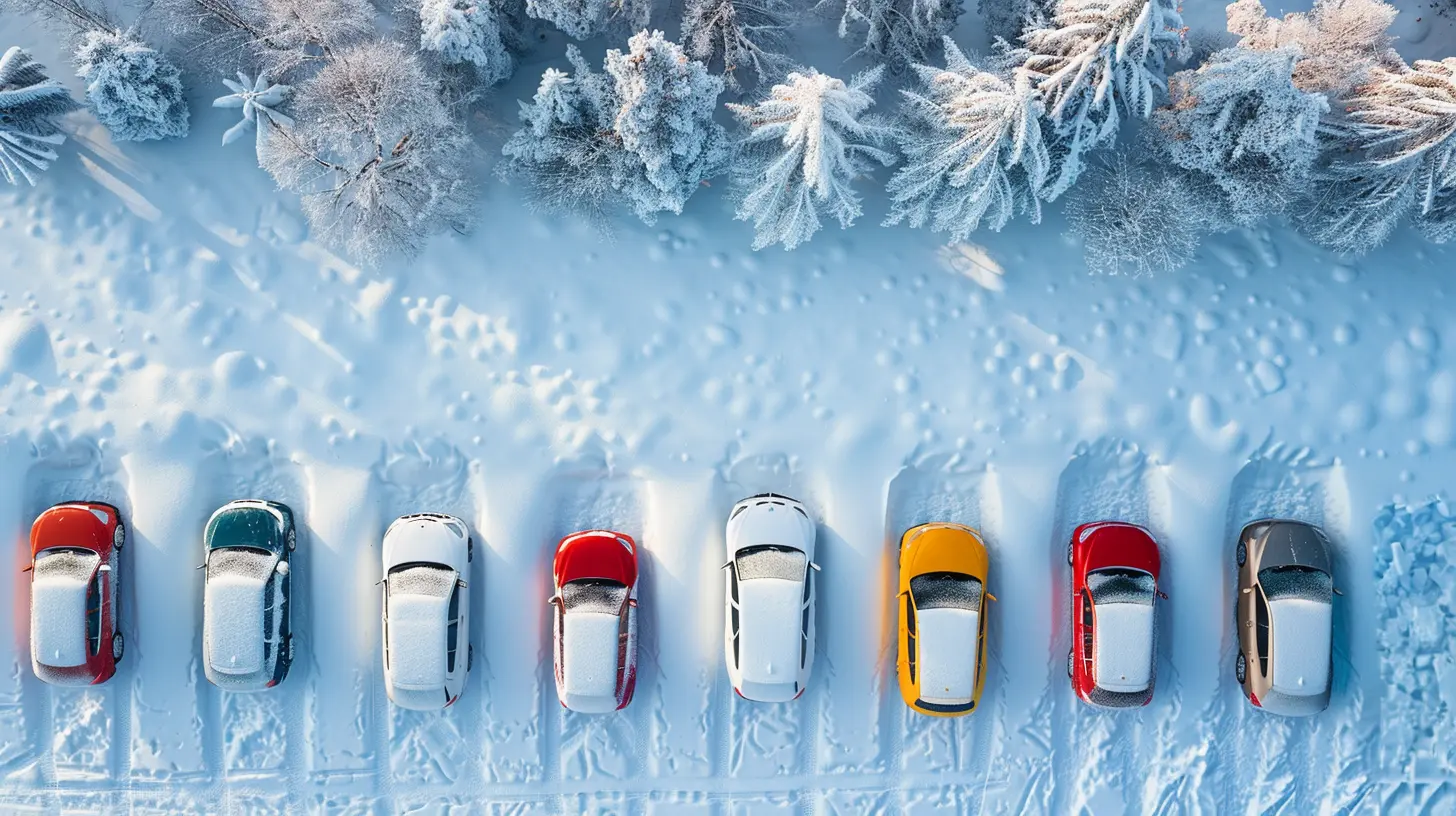
2. Understand Rental Car Policies for Winter Driving
Rental companies have special policies for driving in snowy conditions. Ignoring them could cost you.Key Things to Check:
✅ Winter Tire Policy – Some locations require winter tires by law (like Quebec, Canada). If you're renting in one of these areas, ensure they’re included.✅ Insurance Coverage – Does your rental include coverage for winter-related accidents? If not, you may want to add extra protection.
✅ Roadside Assistance – If you get stuck in the snow or your car won’t start, you’ll be glad you have this.
✅ Snow Chains – Some mountain roads require snow chains. Check if your rental includes them (or if you can rent them separately).
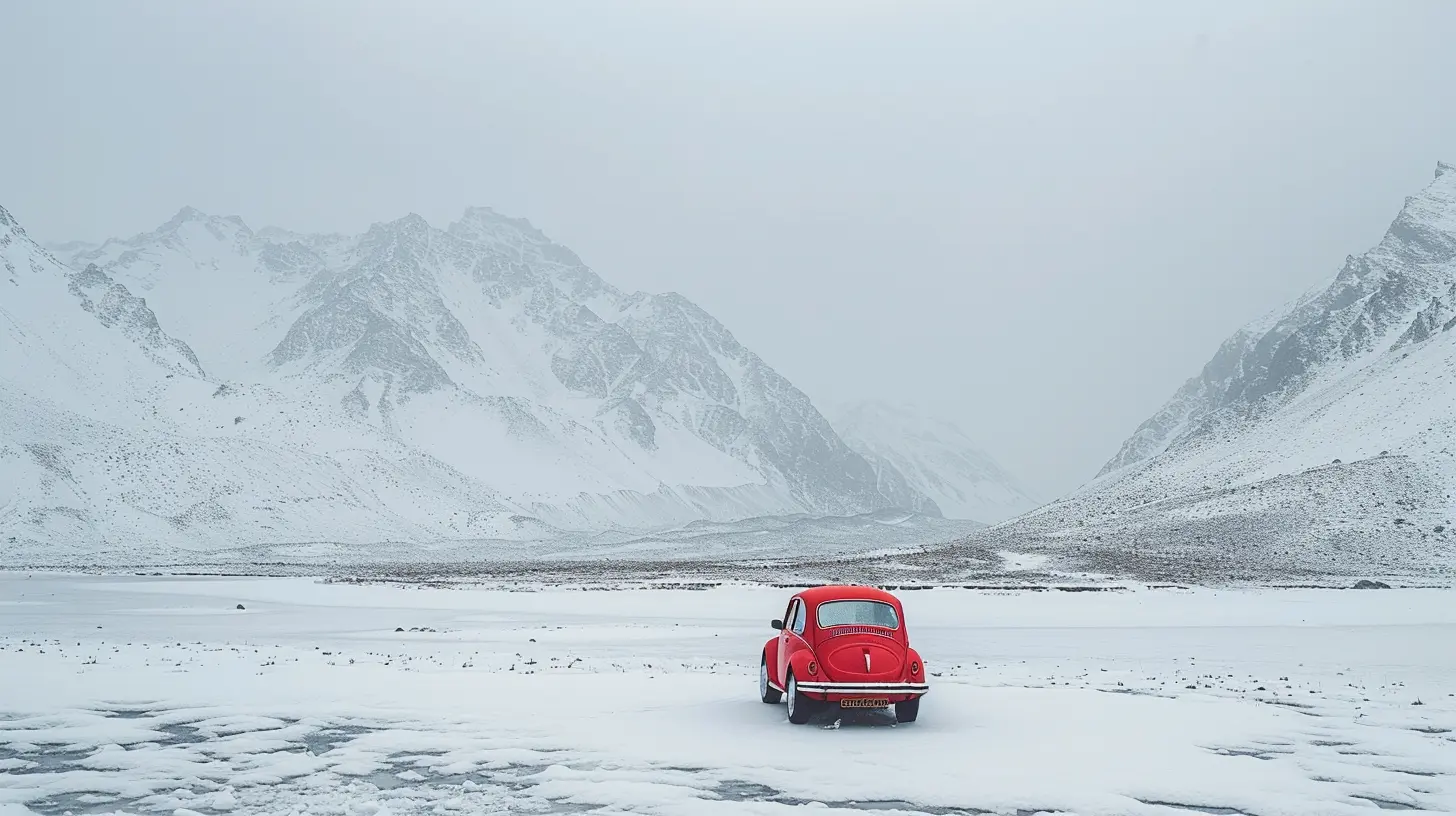
3. Essential Safety Tips for Driving in Snow
Winter driving isn’t the same as summer cruising. Snow and ice can make roads dangerous, even for the most experienced drivers.Drive Slowly and Smoothly
Speeding in snow? Bad idea. Always drive slower than normal, and avoid sudden moves—no sharp braking, no aggressive acceleration, and no abrupt turns.Increase Your Following Distance
Braking in snow takes longer. Leave at least 6-8 seconds of following distance between you and the car ahead.Use "Snow Mode" If Available
Some cars have a "Snow Mode" feature that adjusts throttle response and traction control. If your rental has it, turn it on.Brake Gently to Avoid Skidding
- If your car has anti-lock brakes (ABS), press the brake firmly and hold it down.- If you don’t have ABS, pump the brakes gently to avoid locking the wheels.
Watch for Black Ice
Black ice is sneaky—it looks like wet pavement but is actually a thin layer of ice. Be extra cautious on bridges, shaded areas, and early mornings when temperatures are lowest.> Pro Tip: If you start skidding, don’t panic. Steer in the direction you want to go and don’t slam on the brakes. 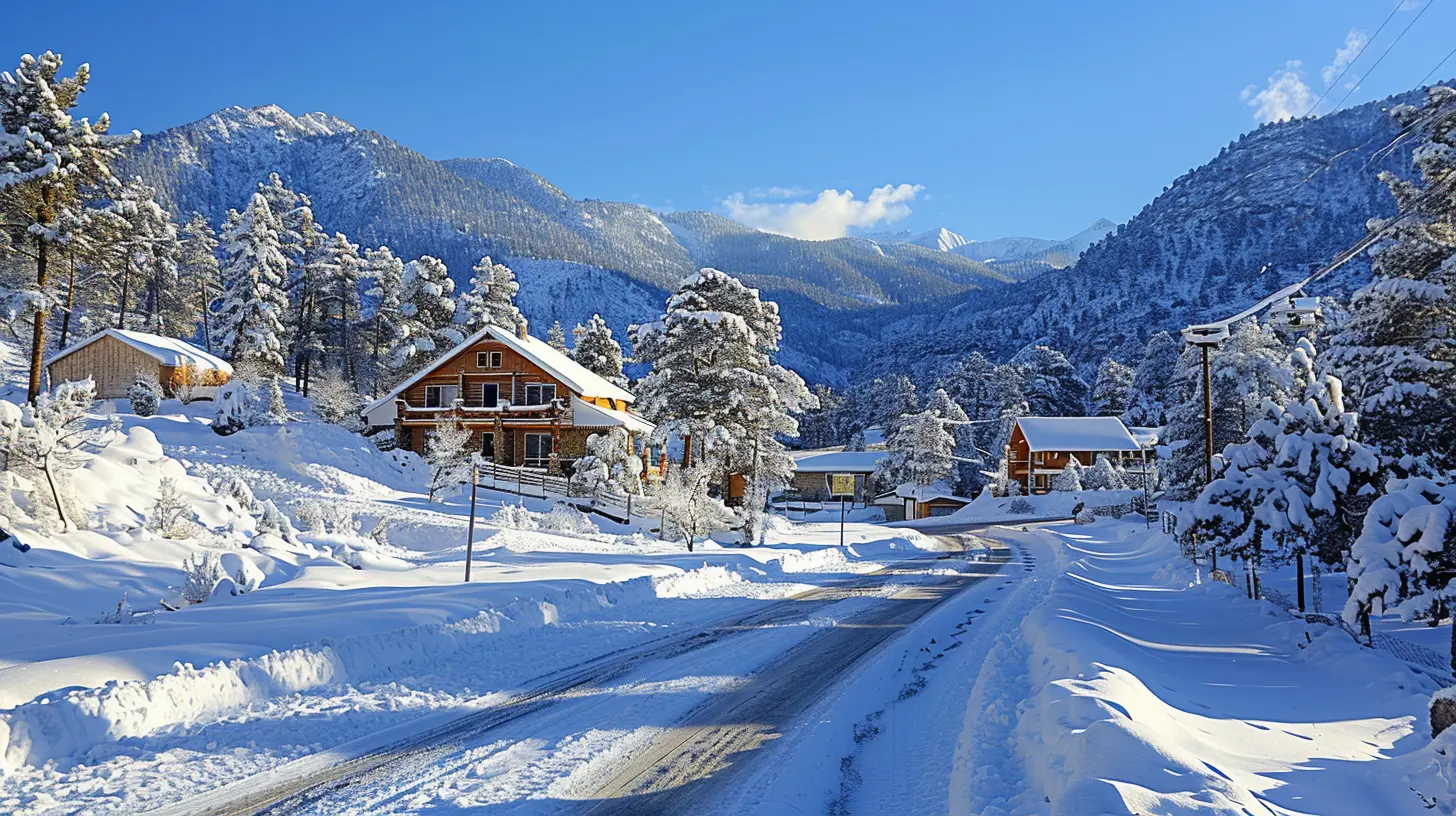
4. Pack an Emergency Winter Car Kit
Even the best drivers can run into trouble with winter roads, so always be prepared. Pack these essentials in case of an emergency:✅ Ice scraper & snow brush – You’ll need to clear your windshield often.
✅ Shovel – Useful if your car gets stuck in deep snow.
✅ Sand or cat litter – Sprinkle it under tires for traction if you’re stuck.
✅ Blankets & warm clothing – Just in case you're stranded for a while.
✅ Portable phone charger – A dead phone is the last thing you need.
✅ Flashlight & extra batteries – Snowy nights can get very dark.
✅ Non-perishable snacks & water – Hunger strikes at the worst times.
> Pro Tip: Keep your gas tank at least half full to prevent fuel lines from freezing!
5. Know the Best Driving Techniques for Snowy Roads
Even if you’ve driven in snow before, a rental car is unfamiliar. Here’s how to stay safe behind the wheel:- Accelerate and brake gently – Quick moves can send your car sliding.
- Steer gently – Avoid sharp turns that can cause skidding.
- Use low gears going downhill – Helps maintain control and prevents excessive braking.
- Avoid using cruise control – Snow and ice require full attention and immediate reactions.
6. Be Aware of Local Winter Driving Laws
Winter road laws vary by country and even by state or province. Don't assume laws are the same everywhere.Examples of Regional Winter Driving Laws
- Canada (Quebec) – Winter tires are mandatory from Dec 1 to Mar 15.- Germany & Austria – If you don't have winter tires in snowy conditions, you could face heavy fines.
- USA (Mountain States) – Some highways require snow chains during winter storms.
Always check local winter driving laws before your trip to avoid fines or legal trouble.
7. What to Do if You Get Stuck in Snow
It happens. Even with all the right preparations, you might get stuck in snow. Here’s what to do:1. Stay calm – Panicking won’t help.
2. Don’t spin your wheels – It’ll just dig you in deeper!
3. Clear snow away from tires – Use a shovel if needed.
4. Turn wheels left and right – This can help gain traction.
5. Use sand, cat litter, or floor mats – Place them under the tires for grip.
6. Rock the car gently – Shift between drive and reverse to build momentum.
7. Call for help if needed – If all else fails, roadside assistance (or a friendly passerby) can save the day.
> Pro Tip: If you're stuck overnight, keep the engine running only occasionally to prevent carbon monoxide poisoning. Crack a window slightly to allow fresh air in.
Final Thoughts
Renting a car in the snow doesn’t have to be stressful—as long as you’re prepared. Choosing the right car, understanding rental policies, driving cautiously, and packing an emergency kit can make all the difference.So, if you’re planning a winter adventure, take these tips to heart. Stay safe, drive smart, and enjoy the snowy scenery without the stress of unexpected surprises!
all images in this post were generated using AI tools
Category:
Car RentalsAuthor:

Kelly Hall
Discussion
rate this article
1 comments
Yvette McCollum
Snowy roads: where your car becomes a slippery unicorn—hold on tight and enjoy!
October 17, 2025 at 4:24 AM

Kelly Hall
Glad you enjoyed the snow analogy! Stay safe and happy driving!
